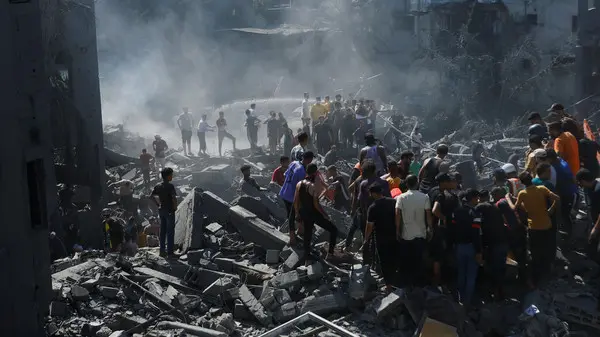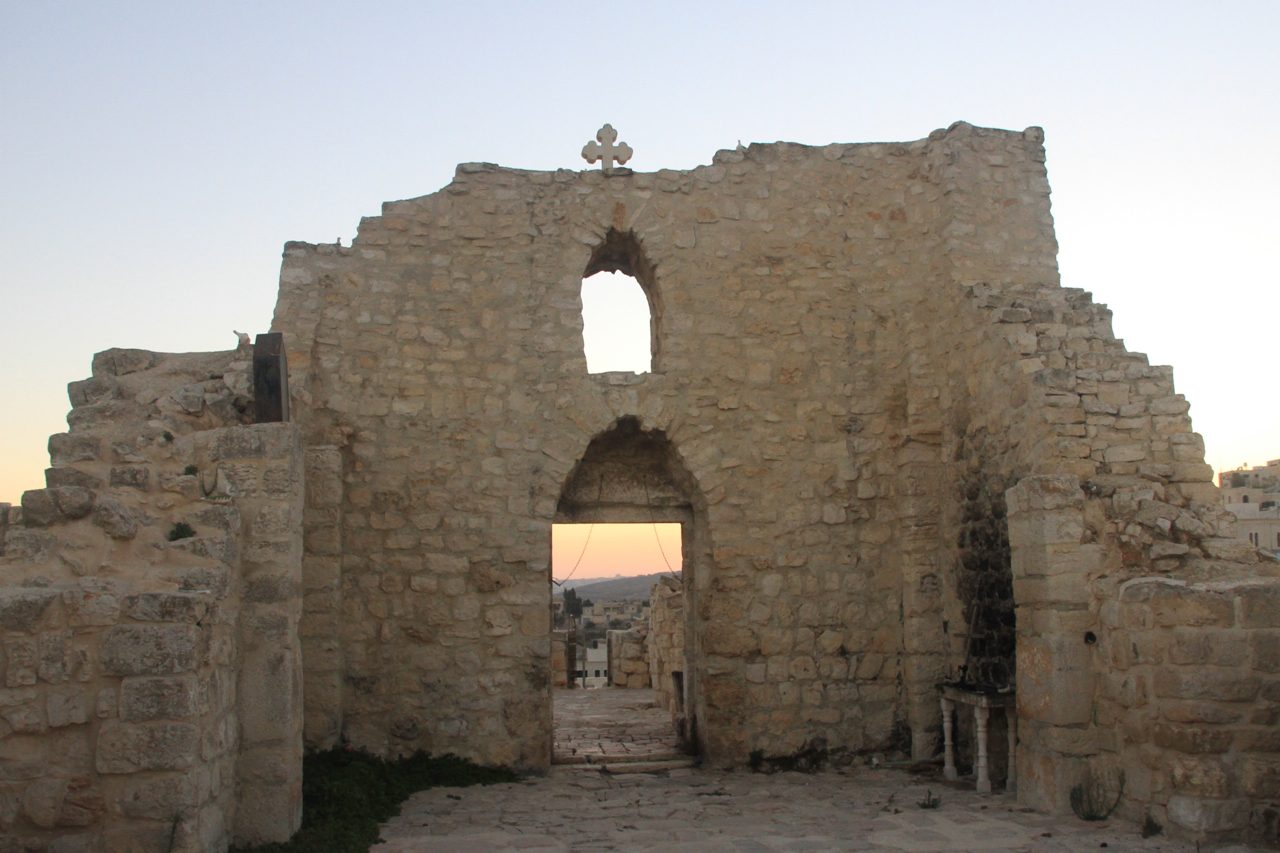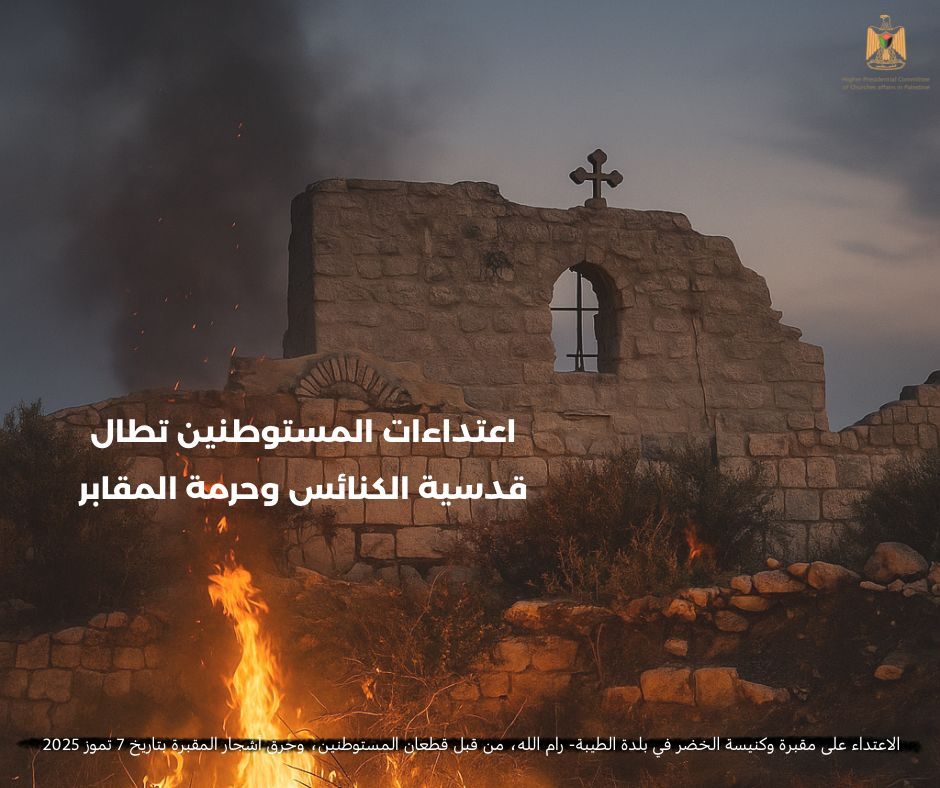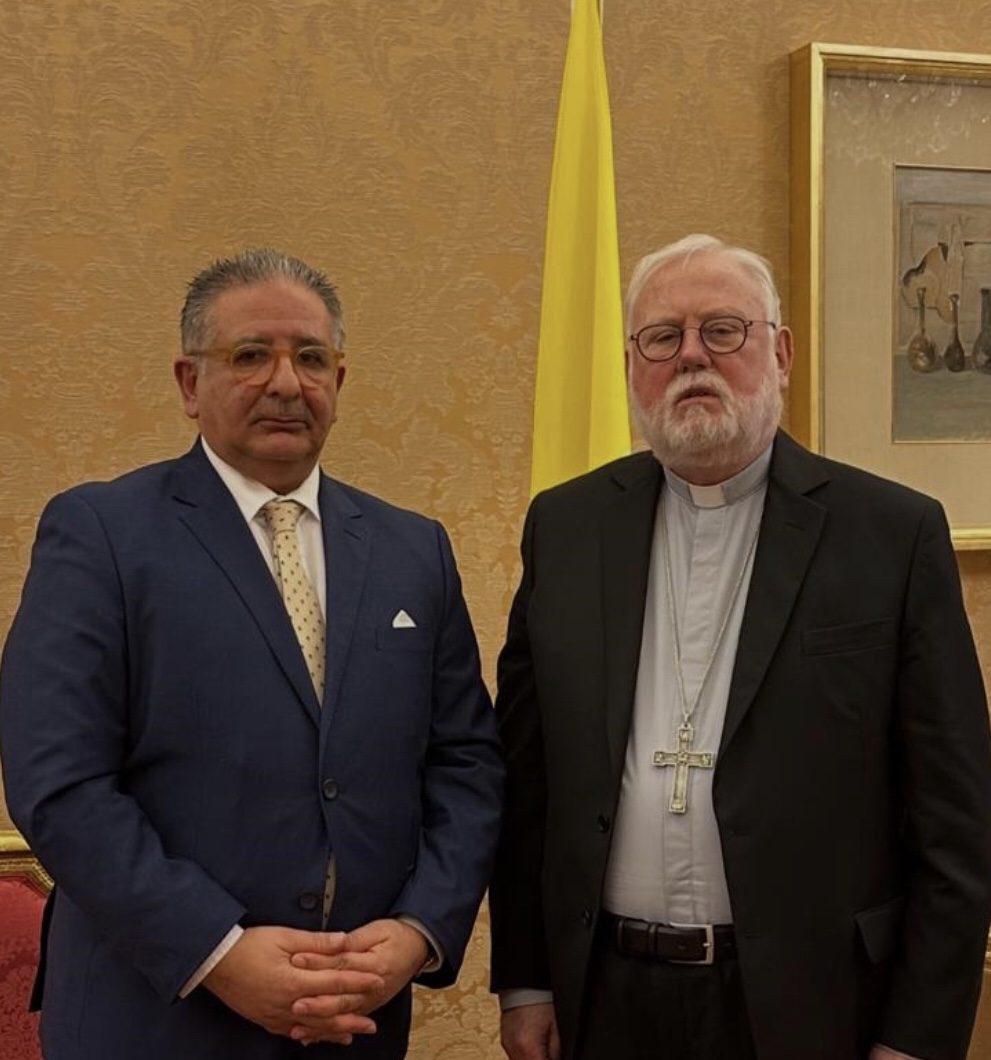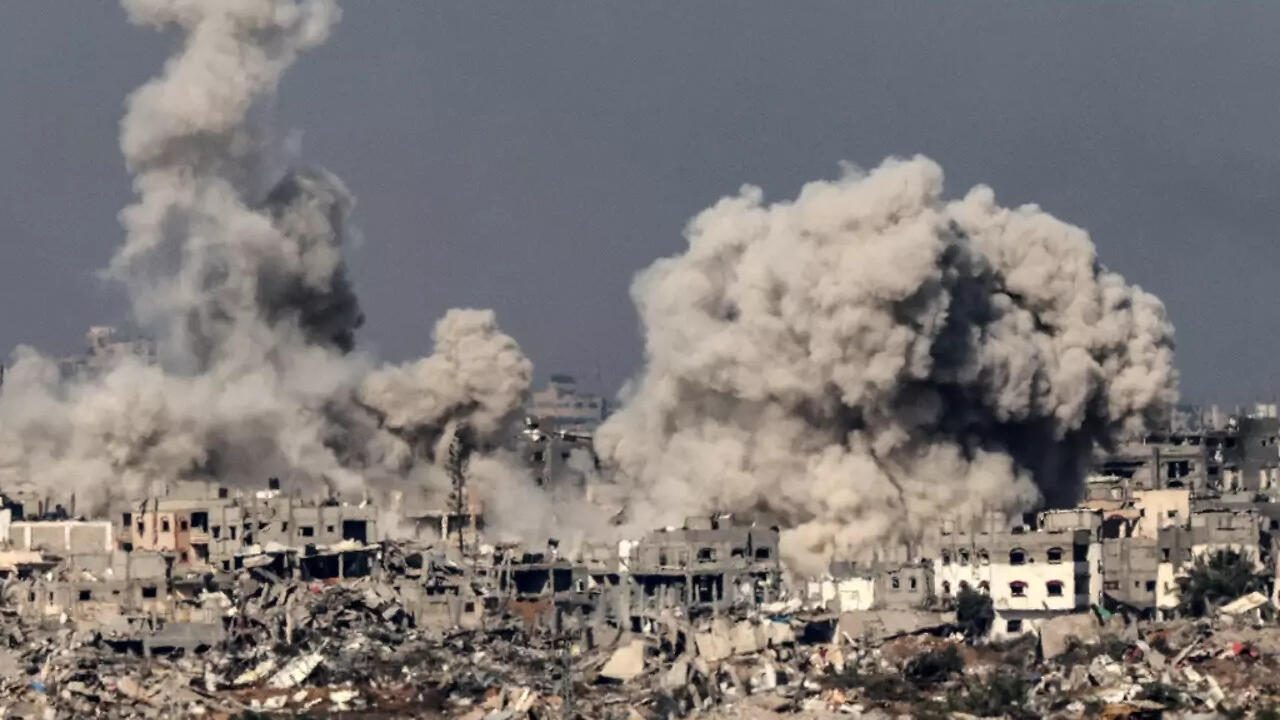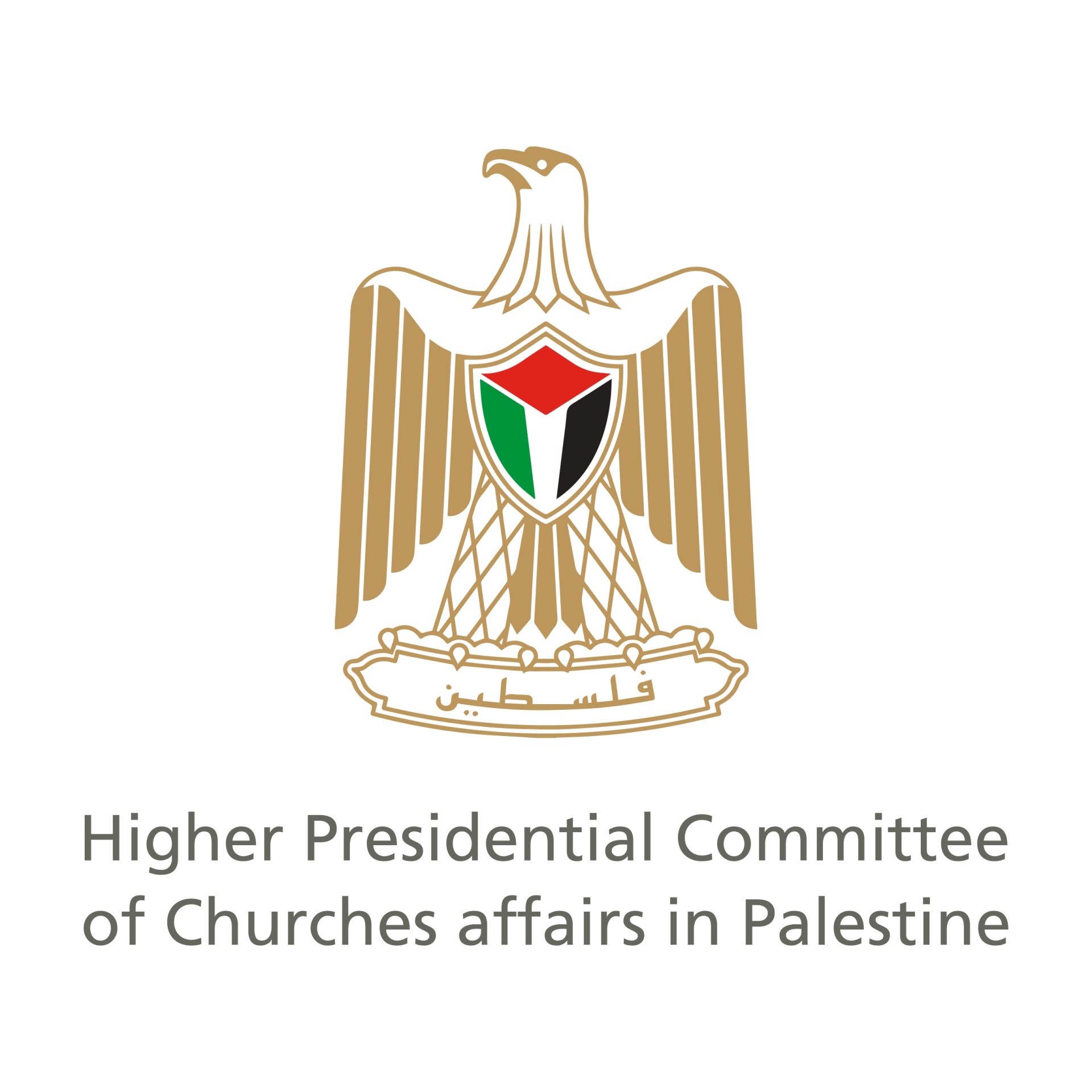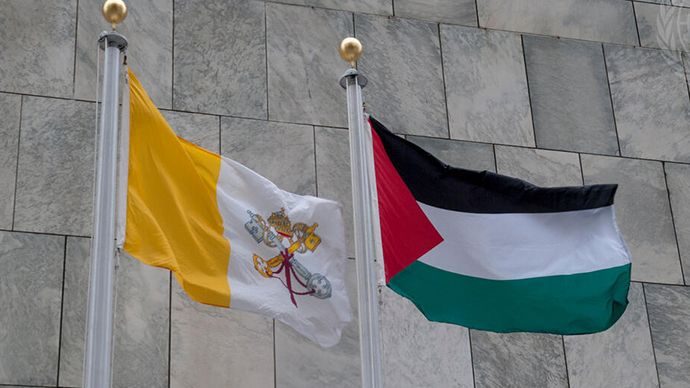One of the cruelest and most vicious genocides in the history of the world, Israel’s genocide on Gaza has disrupted the circle of existence and shattered the fabric of life for many families.
34,000 Palestinians, mostly women and children, have been killed, replacing the smell of Gaza Strip beaches and seawater with the stench of blood and death. The number of wounded has exceeded 80,000.
Forcibly displaced from their homes, families flee south in desperation. Others stop to rest only to greet Israeli indiscriminate killing, asleep.
Bodies lie in the street like fallen leaves, scattered and forgotten, as the living rush by, indifferent to their presence for the mere sake of not wanting to join them in death.
As if more than 75 years of a belligerent Israeli occupation hasn’t been enough, Christians and Muslims in the Gaza Strip share a grim fate: Palestinian land has been transformed into a sprawling graveyard.
Hope struggles to survive amidst the rubble of shattered lives.
The cries of Gaza’s children echo salvation for what little remains of childhood cut short—no education, no peace, no solace, no sleep. The cruel Israeli occupation has stolen anyright to the normal childhood seen in most parts of the world.
Countless Palestinians have been entombed beneath the debris of decimated apartment blocks, hospitals, schools, historical landmarks, mosques, and churches. Their voices silenced by the ruthless machinery of screaming Israeli aircrafts and tanks.
Those spared by the missiles now confront the specter of death through starvation, hunger, and famine.
The health catastrophe in Gaza has spiraled into a nightmare of epic proportions with infectious diseases spreading rampant in overcrowded areas. Essential medicines and medical supplies are alarmingly scarce, pushing the sick and injured to the brink of despair. Adding to this horror, hospitals stand as empty shells, their doctors slain, leaving the people of Gaza to suffer and die without hope or respite.
Gaza stands today as a city cloaked in the shadows of death and decay, its historic infrastructure left in ruins by the ravages of war.
Nour Ayyad, 33 years old, and mother of four, lost her 44-year old husband Hani Abu Dawoud. Their youngest was born just as the war began.
“Four years ago, my husband was diagnosed with kidney failure and needed four dialysis sessions per week.”
Amidst the war and the worsening healthcare and medical facilities, she says, he had to undergo dialysis twice a week instead of the usual four sessions; which drastically affected his health. Forced to leave al-Shifa hospital in Gaza City when it was placed under siege by Israeli occupation forces, he fled to Khan Yunis alone.
Yet, shortly after arriving at a friend’s house, Israeli occupying forces ordered people to evacuate the area, forcing him again to flee to Rafah, alone.
Seeking refuge at Abu Yousef al-Najjar hospital in Rafah, he passed away days later. Hani could not be buried in the family cemetery or beloved church.
His tragedy mirrors that of Wisam Tarazi, who was denied Christian religious ceremonies and a dignified burial due to the Israeli siege
The war cost Amal Mikhail her mother two months ago. “She battled multiple health issues, including infections. Due to the lack of proper healthcare and scarcity of essential medications, her condition deteriorated rapidly, leading to her pass away.”
Heavy with grief, she tells us she lost her nephew, Serbion, after he fell while performing maintenance at the Holy Family Latin Church. He was one of the forcibly displaced Palestinians who sought refuge at the church. He was taken to al-Shifa hospital, but due to overcrowding from other wounded Palestinians he couldn’t receive the intensive care he needed. Tragically, he passed away four days later.
Less than a week into Israel’s war on Gaza, now 7 months ago, Israeli forces compelled Gaza City residents to evacuate to the southern Strip, anticipating a major ground invasion. Over 80% of the city’s population fled southward. Concurrently, Palestinian Christians sought shelter in St. Porphyrius Orthodox Church and the Holy Family Latin Church, housing roughly 350 and 600 individuals, respectively.
On October 19th, 17 displaced Palestinians were killed in an Israeli airstrike on the Greek Orthodox Church compound. Months later, a mother and her daughter were shot by an Israeli sniper while in the kitchen of the Latin Church. The toll persisted with Elham Farah. An elderly caregiver, she was shot by an Israeli soldier and left to bleed to death in the street.
Leaving their homes in the churches, the forcibly displacedhoped to return but faced the harsh reality that nearly 80% of Gaza’s buildings were either partially or completely destroyed. This devastation also affected many Christian families with initial estimates showing the destruction of three factories and over ten shops owned by Christians, along with numerous public facilities serving the entire community in Gaza.
The Arab Evangelical Hospital and its affiliated church, the Holy Family School, the Rosary Sisters School, and the YMCA have suffered partial destruction. Meanwhile, the Orthodox Cultural Center has been completely destroyed.
Additionally, The Middle East Council of Churches Association and its clinics, such as the al-Daraj and al-Shuja’iya clinics, were burned down.
The Vocational Training Center in Gaza and al-Qarara have faced total destruction. The devastation of hospitals and the scarcity of medicines have exacerbated an already dire situation, especially for the elderly displaced inside the church.
Shockingly, reports indicate that approximately 15 Palestinian Christians could have been saved with proper medical attention. In Gaza, falling ill is akin to execution by the oppressive Israeli occupation.
This is the harsh reality of life in Gaza, but it’s just a fraction of the whole story. The deliberate targeting of communication networks and journalists by the Israeli occupation keeps much of this tragedy hidden from the world.
Yet, amid the genocide, the people of Gaza refuse to be silenced. They endure exhaustion and burdens that defy description, living through days that are a mere shadow of life. But even in the face of such despair, hope endures. They cling to the belief that freedom will one day triumph, that their voices will be heard, and that their suffering will not be in vain.

